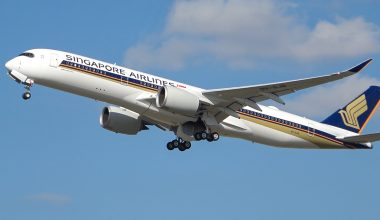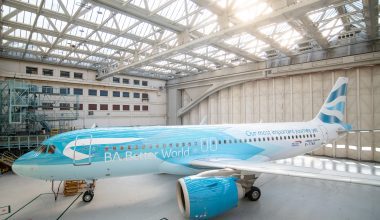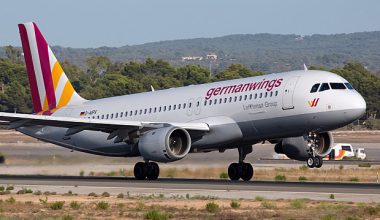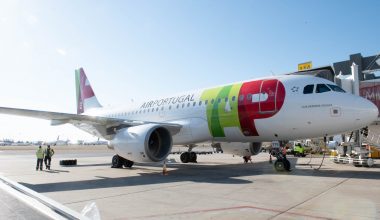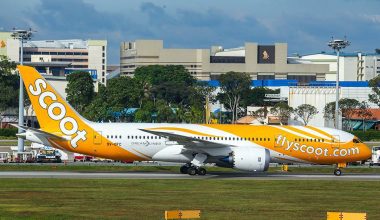Following the Russian invasion of Ukraine, the Western allies have imposed a series of sanctions set to incapacitate Russia’s airline and aerospace sector after having targeted its leasing sector at the initial phase.
Closed airspace
In response to Russian military aggression over Ukraine, the European Commission imposed several punitive measures to harm Russia’s economy and to limit collateral damage, including a blanket ban on Russian flights. As per EU’s announcement on February 26, no Russian aircraft, be it Russian-owned, Russian-registered, or Russian-controlled, will be able to land in, take off or overfly the airspace of any EU nation. Ahead of the decision, individual EU countries had been prohibiting Russian planes in their airspace. Poland made the first move to ban all Russian air operators from using its airspace and bypass Russia on all of its long-haul routes.

Germany announced that it would close airspace to Russia for three months. The United Kingdom additionally barred Russian airlines from landing or even crossing its airspace, leading Moscow to retaliate with a similar curb on British aircraft, suspended dual export license to Russia, and banned exports of some of the high-tech products.
Russia has been reciprocating in kind with tit-for-tat restrictions, with Aeroflot canceling all flights to European destinations until further notice and S7 airlines until at least March 13.
Prohibition on aircraft export, sales, or leasing
In addition to blanket flight ban on Russian planes, the EU Commission also forbids the leasing of aircraft as well as the export and sale or transfer of all aircraft, aircraft parts, and equipment to Russian entities. None of the countries in the European Union may conduct an associated repair, maintenance, and financial services with Russia.
All European Union-based lessors have an impending late March deadline to extricate themselves from pre-existing contracts with Russian operators. As the sanction bans any new aircraft deals with immediate effects, the lessors have started to repossess aircraft from Russian carriers. Given the short timeframe and lack of clarity regarding the cooperation level given by Russian authorities and operators, lessors are facing difficulty in figuring out the ways to terminate contracts and repossess a lot of aircraft in 30 days.
Russia’s biggest airline, Aeroflot, has a firm order commitment with European aerospace giant Airbus for 14 A350-900 aircraft, while Russian aviation lessor Ilyushin Finance Co has a firm order due for 14 Airbus A220-300 airliners. Similarly, UTair and Volga-Dnepr Airlines are expecting28 Boeing 737-8s and six Boeing B777-Fs, respectively.
According to the TASS news agency, a unanimous lessor asked for the repossession of three B737-800s operated by Aeroflot’s LCC unit Poneda, two of which are active on domestic networks. Likewise, a B777-300(ER) owned by Aircastle but operated by Nordwind Airlines remains at Mexico City International Airport, having flown to the nation on a cargo-only service. Also, two Aeroflot aircraft A321-200 and A3200-200, are currently parked at Geneva and Amsterdam Schiphol, respectively, due to airspace closure for Russian aircraft.
Dublin-based AerCap, the biggest aircraft leasing company, has over 140 aircraft placed in Russia, and its Russian clients involve Aeroflot, S7 Airlines, Rossiya, Azur Air, etc. Following the requirement of sanction to wind up deals, Aercap agreed to terminate any leasing activities in the country within the deadline.

Canada has also taken an unprecedented step to close skies to Russian planes in protest of the Russian invasion of Ukraine.
The US joins allies to close off American airspace.
The United States has announced to ban Russian flights from its airspace, joining the EU and Canada on Russian aircraft ban to isolate Russia and add an additional squeeze on their economy. After the White House held extensive discussions with the US carriers, the US made a decision to close its airspace to all Russian flights, which will take effect by today’s end.
Huge impact on Russian carriers
The restriction on airspace will be a huge blow to Russian airlines, which make up around 70% of flights between Russia and the EU. Closed airspace means the carriers have to take circuitous routes to operate flights that will take a long duration. Repossession of aircraft from several leasing companies, expensive flight tickets due to longer routes, and piling number of canceled flights may incapacitate the Russian air operators, denting the industry’s pandemic recovery.
Conversely, as Russia has banned airlines from 36 countries, many carriers will have to divert south, avoiding Russian airspace, which is a major intersection for global trade, further exacerbating global supply-chain woes.

